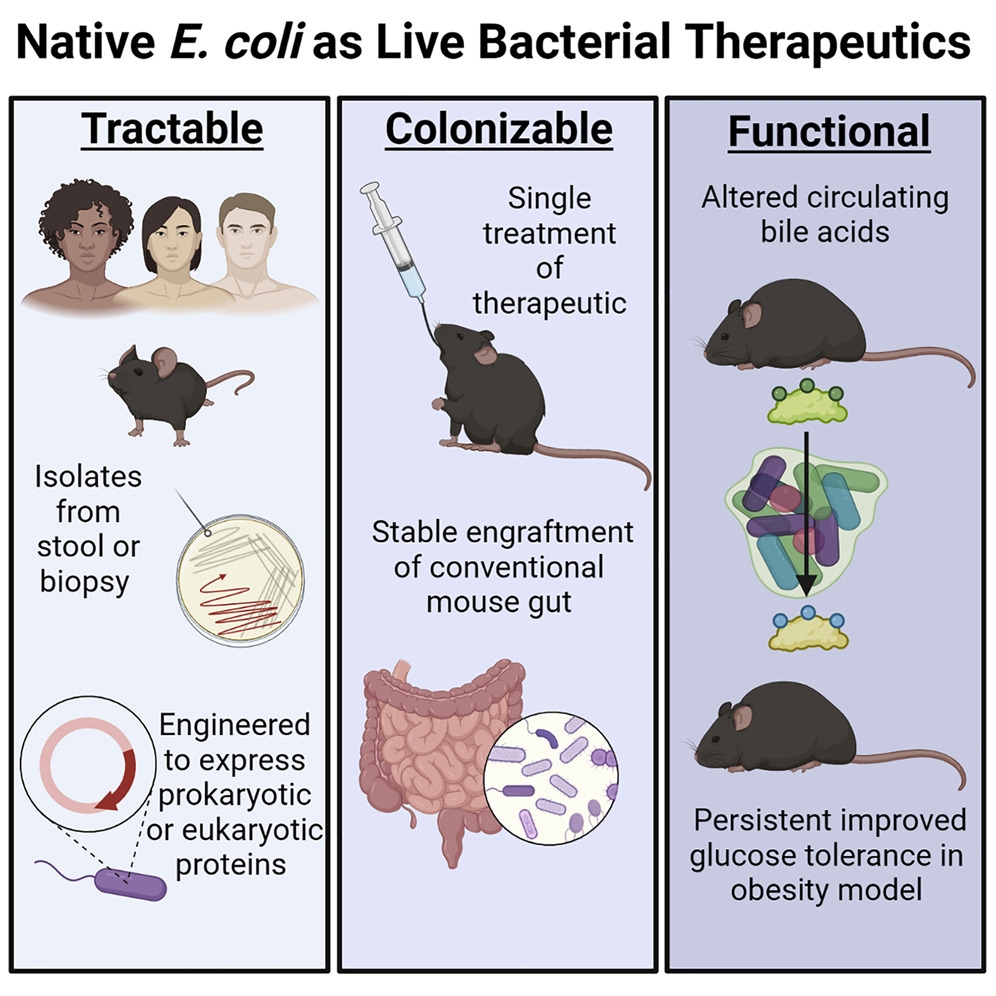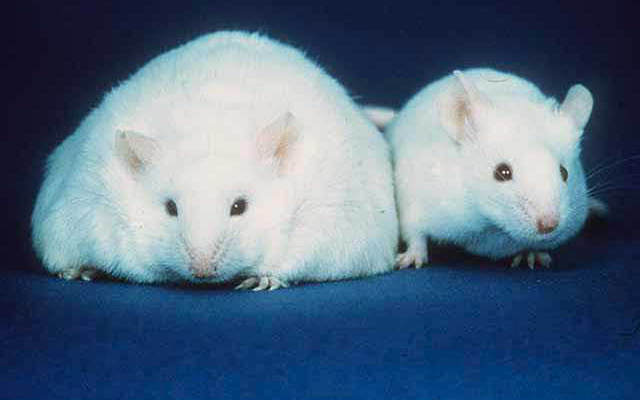News
Harnessing Native Gut Microbes: A Novel Frontier in Live Bacterial Therapeutics for Chronic Diseases
UCSD Internal Medicine Grand Rounds Talk summarizing the work of the lab over the last 5 years in gut microbiome, metabolism/type 2 diabetes, colorectal cancer, and PCOS.
Time-Restricted Eating May Reverse Diabetes & Obesity
Professor Satchin Panda, Amandine Chaix, and Amir Zarrinpar of the Regulatory Biology Laboratory at the Salk Institute explain their discovery that time-restricted eating shows signs of reversing the effects of obesity and diabetes in mice.

Engineering the Microbiome to Potentially Cure Disease
In our recent study, we delved into the field of live bacterial therapeutics (LBTs) with an innovative approach to address chronic conditions like obesity, diabetes, and inflammatory bowel disease, which are profoundly influenced by gut microbiome imbalances. Through a novel technique, we used native bacteria, already well-adapted to the gut environment, as the vehicle for delivering therapeutic transgenes to induce long-term, potentially curative changes in gut health. We found this approach successfully engrafted engineered bacteria throughout the gut, resulting in improved physiological responses, such as better blood glucose control in a mouse model of type 2 diabetes, revealing a promising potential of LBTs in treating chronic diseases.

A Rhythmic Small Intestinal Microbiome Prevents Obesity and Type 2 Diabetes
Our study revealed that diet-induced obesity and unrestricted eating routines disrupted the gut microbiome’s rhythms and the signaling pathways that modulate intestinal clocks in mouse models, leading to adverse weight gain. This work underscores the significance of maintaining a healthy gut microbiome through diet and timed feeding patterns, vital in modulating circadian rhythms that govern metabolic health, offering valuable insights for future research on gut functionality and the timing-dependent impacts of medications on the gut microbiome.

Depleting microbiome with antibiotics can affect glucose metabolism
A new study from the Salk Institute has found that mice that have their microbiomes depleted with antibiotics have decreased levels of glucose in their blood and better insulin sensitivity. The research has implications for understanding the role of the microbiome in diabetes. It also could lead to better insight into the side effects seen in people who are being treated with high levels of antibiotics.

To prevent or reverse obesity and its ills, timing may be everything
If we could just stop after dark, even unhealthful foods might not be so damaging, says a new study, which explores — in mice — the effect of restricting eating to a nine-hour stretch every day.

Researchers Say When You Eat Each Day May Be Crucial to Weight Loss
Mice on Time-Restricted Diets Had Lower Cholesterol, More Muscle Than Unrestricted Mice

A 12-hour Window for a Healthy Weight

Don’t sabotage your diet with a midnight snack

Why late night dining may encourage weight gain
Eating after the sun has gone down might trigger weight gain, say researchers who have been studying the effect in mice.

Extended daily fasting overrides harmful effects of a high-fat diet:
Study may offer drug-free intervention to prevent obesity and diabetes

Check our twitter feed for new updates.
Short-term fasting made mice healthier
Mice that ate their entire food for the day in an eight-to-12-hour window had better markers for health than did mice free to eat whenever they wanted.
Increasing time between eating controls metabolism and reverses obesity in mice
Researchers found that mice were less likely to develop obesity, diabetes or other negative consequences of overeating when the time between feedings was fixed between 8 and 12 hours.
